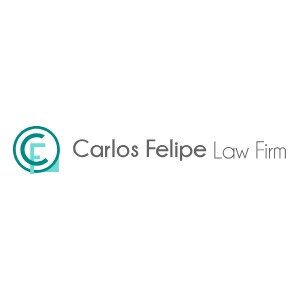Best Environmental Law & Compliance Lawyers in Dominican Republic
Share your needs with us, get contacted by law firms.
Free. Takes 2 min.
Or refine your search by selecting a city:
List of the best lawyers in Dominican Republic
About Environment Law in Dominican Republic
Environment law in the Dominican Republic is a rapidly developing field, aiming to address the nation's rich biodiversity, extensive coastlines, and lush natural resources. The country's environmental framework is guided by its constitution and international agreements, bolstering its efforts to preserve its natural habitats and tackle issues such as pollution, deforestation, and sustainable development. Despite these initiatives, challenges persist due to factors like industrial growth, tourism, and climate change. Ensuring compliance with environmental regulations and promoting sustainable practices are key priorities for the government and civil society.
Why You May Need a Lawyer
There are numerous situations in which you might require legal assistance in the field of environment law in the Dominican Republic. These include:
- Disputes over land use and property development that affect environmental protection zones.
- Issues related to pollution control and waste management compliance for businesses.
- Legal actions involving violations of environmental regulations or penalties imposed by authorities.
- Transactions involving natural resources or environmental assets, requiring due diligence and regulatory compliance.
- Advocating for community rights against environmental degradation caused by industrial or infrastructure projects.
Local Laws Overview
The legal framework for environmental protection in the Dominican Republic involves several important laws and regulations. Key aspects include:
- Environmental Law No. 64-00: Provides comprehensive guidelines for environmental protection, sustainable development, and conservation of natural resources.
- Protected Areas Law 202-04: Establishes the legal parameters for creating and managing protected natural areas across the country.
- Mining Law No. 146-71: Regulates extraction activities to ensure environmental conservation and sustainable use of mineral resources.
- Water Law: Governs the use, protection, and sustainable management of water resources.
- Climate Change Policies: In alignment with international commitments, these policies aim to mitigate the impact of global warming and adapt to climate change.
Frequently Asked Questions
What are the primary environmental challenges in the Dominican Republic?
The main challenges include deforestation, coastal erosion, water pollution, and managing the environmental impacts of tourism and industrial activities.
How does the Dominican Republic enforce environmental regulations?
Enforcement is conducted through the Ministry of Environment and Natural Resources, which monitors activities, issues permits, and imposes sanctions or fines for breaches of environmental laws.
Can foreign companies invest in natural resources in the Dominican Republic?
Yes, but they must adhere to local environmental regulations and often require permits from relevant authorities, ensuring that their activities do not harm the environment.
What role do communities play in environmental protection?
Local communities are crucial in environmental protection efforts, participating in conservation projects and often collaborating with NGOs to monitor and report environmental issues.
What are the penalties for violating environmental laws in the Dominican Republic?
Penalties may include fines, suspension of business activities, revocation of permits, and in some cases, legal prosecution. The severity depends on the nature and extent of the violation.
How can businesses ensure compliance with environmental regulations?
Businesses should conduct regular environmental audits, remain informed of legal updates, and consult with legal experts to navigate compliance complexities effectively.
Are there incentives for adopting sustainable practices?
Yes, the government sometimes offers tax breaks, grants, or preferential treatment in regulatory processes for companies that engage in sustainable practices or renewable energy projects.
Is it possible to contest environmental penalties?
Yes, businesses or individuals can challenge environmental penalties by appealing to the administrative or judicial bodies empowered to review such cases.
What environmental commitments has the Dominican Republic made globally?
The Dominican Republic is a signatory to various international agreements, including the Paris Agreement, committing to reduce carbon emissions and promote sustainable development.
How do tourism and environment laws coexist in the Dominican Republic?
The integration of sustainable tourism practices is promoted, aiming to minimize environmental impact while boosting economic growth through eco-friendly tourism initiatives.
Additional Resources
Several resources and organizations can be helpful for individuals seeking more information or legal advice in the field of environment in the Dominican Republic:
- Ministry of Environment and Natural Resources
- National Council for Climate Change and Clean Development Mechanism
- Environmental NGOs, such as Grupo Jaragua and Ecored
- Protected Areas and Biodiversity Conservation Projects
- Legal assistance organizations specializing in environmental law
Next Steps
If you need legal assistance in the area of environmental law in the Dominican Republic, consider the following steps:
- Consult with a qualified environmental lawyer who has experience in Dominican law.
- Gather all necessary documentation and information related to your case or concern.
- Evaluate the potential implications and outcomes with your legal advisor before proceeding.
- Stay informed about any changes in environmental legislation or policies that may affect your situation.
This guide aims to provide a foundational understanding of the environmental legal landscape in the Dominican Republic, helping you take informed action with the right professional guidance.
Lawzana helps you find the best lawyers and law firms in Dominican Republic through a curated and pre-screened list of qualified legal professionals. Our platform offers rankings and detailed profiles of attorneys and law firms, allowing you to compare based on practice areas, including Environmental Law & Compliance, experience, and client feedback.
Each profile includes a description of the firm's areas of practice, client reviews, team members and partners, year of establishment, spoken languages, office locations, contact information, social media presence, and any published articles or resources. Most firms on our platform speak English and are experienced in both local and international legal matters.
Get a quote from top-rated law firms in Dominican Republic — quickly, securely, and without unnecessary hassle.
Disclaimer:
The information provided on this page is for general informational purposes only and does not constitute legal advice. While we strive to ensure the accuracy and relevance of the content, legal information may change over time, and interpretations of the law can vary. You should always consult with a qualified legal professional for advice specific to your situation.
We disclaim all liability for actions taken or not taken based on the content of this page. If you believe any information is incorrect or outdated, please contact us, and we will review and update it where appropriate.
Browse environmental law & compliance law firms by city in Dominican Republic
Refine your search by selecting a city.















